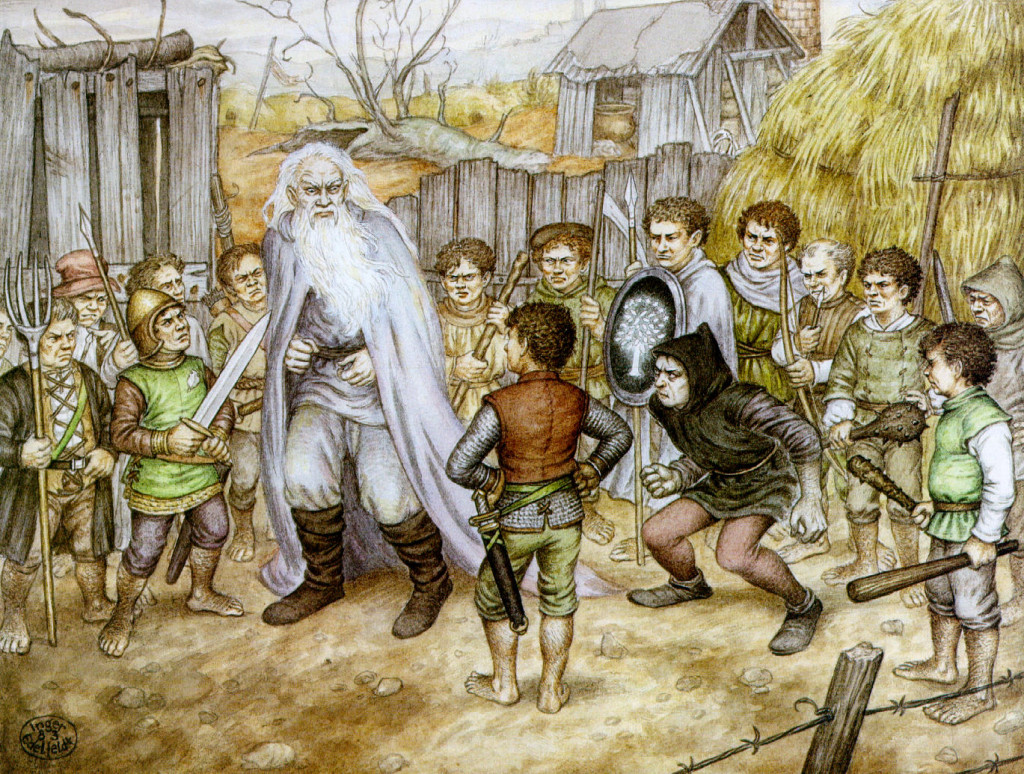
I came across an interesting post not long ago on the topic of legitimate government using hobbits as the primary example. I found the post intriguing and especially these two ideas:
Where to the old Christian view, rights followed from duties in the same man, to our post-Christian view the arbitrary rights of one man translate to duties for unaccounted others. (My right to a free lunch translates to your duty to pay for it, &c.) In this sense, all modern political thinking is in its nature totalitarian.
The connection between rights and responsibility is a deep and important one, so I have to confess my first impression was simply, “I like it when people say things that I agree with,” but the kicker at the end about totalitarianism is, at least theoretically, genuinely interesting. When we move from a view of government as primarily guarantor of negative to provider of positive rights, it’s all downhill from there.[ref]Negative and positive rights. (Wikipedia)[/ref] Then came something a little different:
Similarly, a mediaeval king has the task of defending custom. It isn’t his “right” to change anything, but instead his duty to pass on the kingdom to his successor, unmolested. He is the symbol of unity, of social solidarity, of moral order, of motherhood and apple pie and everything that is “above politics.” When he exceeds his authority, he must be deposed. That is precisely why so much mediaeval political thinking was devoted to explicating the duty of rebellion. It can never be taken lightly, never be required except in the gravest circumstances. It is never a right; it can only be a duty. It is a duty not to overturn, but instead to restore a legitimate order, pleasing to God, that has itself been overturned.
What’s this, a red-blooded conservative American talking seriously about the duties and obligations of kings, as though monarchy wasn’t intrinsically and categorically inferior to democracy? Well, maybe democracy is a little overhyped at times, but there’s something more. As we’ve covered at DR fairly recently, meritocracies can be hereditary. In fact, the more egalitarian a meritocracy society becomes, the more it will tend to generate an entrenched aristocracy. The reason for this is that there are basically two components for human IQ (and other traits related to success in a meritocracy): genes and environment. A truly egalitarian society would give all kids the same (or at least very similar) environments. Thus, the remaining variation would be primarily genetic. Add in a little assortative mating (smart people marrying smart people) and presto: you’re perfect egalitarian meritocracy has an entrenched aristocracy.
This an oversimplification that makes a valid point: maybe some of the lessons of past political philosophies, institutions, and traditions might be more relevant to our modern society than we would like to admit. Instead of denying the undercurrent of hereditary privilege, we may want to acknowledge it and borrow from our past to find creative new approaches to mitigate its dark side.